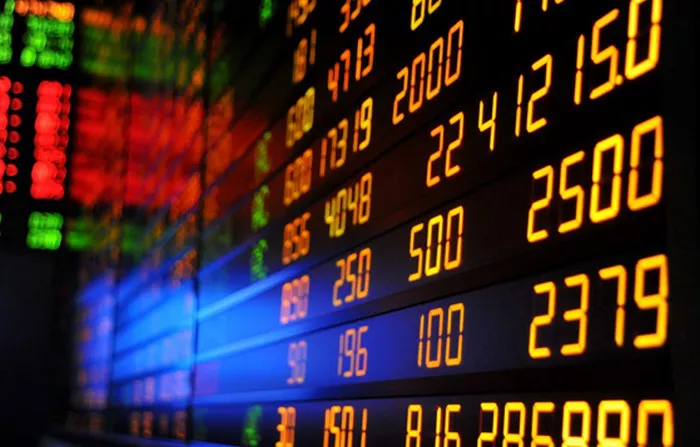Lithium, a key component in rechargeable batteries used in electric vehicles (EVs) and energy storage systems, has become increasingly important in the transition to renewable energy and the electrification of transportation. As demand for lithium continues to rise, investors and stakeholders in the energy sector are exploring ways to hedge against price volatility and manage supply chain risks. One such method is through futures contracts, which allow parties to buy or sell a specified quantity of lithium at a predetermined price on a future date. In this article, we will explore the concept of lithium futures contracts, their potential benefits and challenges, and the current status of the lithium futures market.
Understanding Lithium Futures Contracts
What are Futures Contracts?
Futures contracts are standardized agreements to buy or sell a particular asset at a predetermined price on a specified future date. These contracts are traded on futures exchanges and are used by investors, producers, and consumers to hedge against price fluctuations and manage risk. Futures contracts are available for a wide range of commodities, including agricultural products, precious metals, and energy resources.
The Need for Lithium Futures Contracts
As the demand for lithium continues to grow, driven by the increasing adoption of electric vehicles and renewable energy storage solutions, stakeholders in the lithium supply chain face price volatility and supply chain risks. Lithium prices can be influenced by factors such as changes in demand, geopolitical events, and supply disruptions. Futures contracts provide a mechanism for market participants to hedge against these risks and lock in prices for future lithium purchases or sales.
Key Features of Lithium Futures Contracts
Lithium futures contracts would have several key features, including:
Contract Size: The quantity of lithium covered by each futures contract, typically measured in metric tons (MT) or kilograms (kg).
Contract Grade: The quality and specifications of the lithium covered by the contract, including purity levels and chemical composition.
Delivery Terms: The terms and conditions for the physical delivery of lithium, including delivery locations, storage facilities, and delivery dates.
Settlement Method: The method used to settle the futures contract, which may involve physical delivery of lithium or cash settlement based on market prices.
The Current Status of the Lithium Futures Market
Overview of Commodities Futures Markets
Commodities futures markets play a crucial role in facilitating price discovery, risk management, and investment opportunities for a wide range of commodities. These markets are typically regulated by government agencies and operate through centralized exchanges where futures contracts are traded.
Status of the Lithium Futures Market
As of the time of writing, there is no established futures market specifically dedicated to lithium. While lithium is a critical commodity in the global energy transition, its market dynamics, including pricing mechanisms and supply chain structures, differ from traditional commodities such as crude oil and natural gas. As a result, the development of a liquid and efficient lithium futures market has been slower compared to other commodities.
Potential Benefits of Lithium Futures Contracts
Price Discovery and Transparency
The introduction of lithium futures contracts could enhance price discovery and transparency in the lithium market by providing a benchmark price for lithium transactions. This would enable market participants to make more informed decisions about buying, selling, and investing in lithium-related assets.
Risk Management and Hedging
Lithium futures contracts would allow producers, consumers, and investors to hedge against price volatility and manage exposure to lithium price fluctuations. Producers could lock in prices for future lithium sales, while consumers could secure prices for future lithium purchases, reducing the impact of price uncertainty on their business operations.
Investment Opportunities
The availability of lithium futures contracts would provide investors with opportunities to speculate on lithium prices and gain exposure to the lithium market without directly owning physical lithium assets. Futures contracts allow investors to take long or short positions on lithium prices, potentially generating profits from price movements.
Challenges and Considerations
Market Liquidity
One of the main challenges in establishing a lithium futures market is achieving sufficient market liquidity. Market liquidity refers to the ease with which futures contracts can be bought or sold without significantly impacting prices. Low liquidity can lead to wide bid-ask spreads and limited trading activity, making it difficult for market participants to execute trades at desired prices.
Contract Specifications
Designing standardized contract specifications for lithium futures contracts presents a challenge due to the diverse nature of lithium products and the lack of uniform quality standards. Establishing clear and consistent contract terms, including contract size, grade specifications, and delivery terms, is essential to ensure the integrity and efficiency of the futures market.
Regulatory Considerations
The development of a lithium futures market would require regulatory oversight and approval from relevant government agencies. Regulatory authorities would need to establish rules and regulations governing the trading, clearing, and settlement of lithium futures contracts to protect investors and ensure market integrity.
Supply Chain Dynamics
The global lithium supply chain is complex, with production concentrated in a few key regions, including South America, Australia, and China. Factors such as geopolitical tensions, regulatory changes, and environmental concerns can impact lithium production and supply, influencing futures prices and market dynamics.
Conclusion
While the concept of lithium futures contracts holds potential benefits for market participants seeking to manage risk and gain exposure to the lithium market, several challenges need to be addressed to establish a liquid and efficient futures market. Market participants, industry stakeholders, and regulatory authorities must work together to develop standardized contract specifications, enhance market liquidity, and ensure regulatory oversight. As demand for lithium continues to rise in the transition to renewable energy and electric transportation, the development of a robust lithium futures market could play a crucial role in shaping the future of the global lithium industry.

